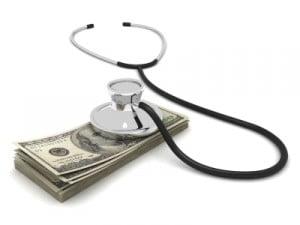Q:My credit score was ruined. My credit score was 710. I missed a couple of payments on a credit card and this put a black mark on my once flawless credit report.
My score dropped to 635 and is affecting my other accounts. What can I do? I already called the bank. I was late due to some health issues that I have been consumed with.
A: Thanks for writing me, and I’m sorry to hear about your recent credit and health problems.
If your credit card company won’t delete the negative information from your credit files — and it sounds like they’ve declined to do that — really the only option you have is to continue to pay all your bills on time and let your score recover from the hit that it’s taken.
In the credit scoring system, “recency” is a big factor.
In other words how recently a bill was paid late determines a lot about your credit score.
A late payment that just happened a month or two ago will be way more damaging than a late payment that took place a year or two ago.
The further away you are (in time) from when the late payment occurred, the less impact it will have on your score.
I know it’s hard to deal with and to wait it out. But if you really were late on the payment, the credit card company is under no legal obligation to change/update your credit report.
Also, you can’t even file a legitimate dispute with the credit bureaus to try to get the late payment(s) erased, because when you dispute something the first thing the credit bureaus do is go to your creditor and ask them if the information on file is correct.
Once they do that, the credit card company will definitely say “she paid late” and the credit bureaus will keep the late payment on your credit files, holding back your credit score.
So at this point, just chalk it up to a very bad and painful learning experience.
The lesson here is to try to always, always pay your bills on time — even if it’s just the minimum payment.
Also, if you ever find yourself financially struggling in the future, if at all possible contact your creditors ahead of the payment due date.
They may work out a partial payment deal with you or agree NOT to report you to the credit bureaus if they know what’s going on.
Hope this info helps …. and good luck to you!








